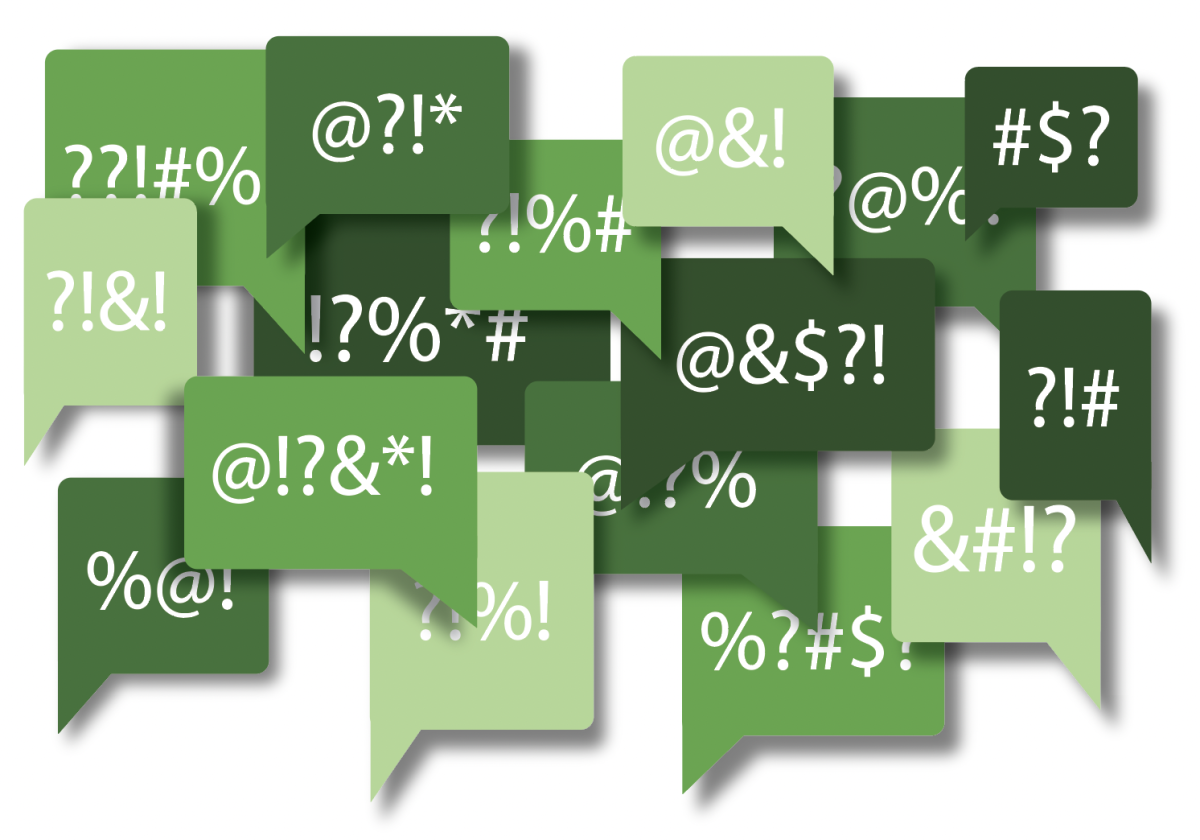Hearing a Lawrence High student say the words “burn them at the stake” about an LGBTQ+ student was not even the most shocking example of things I have heard in the student section, but it is definitely one that should not have been brushed off so lightly.
The same goes for the handful of students known for their use of the F-slur.
This behavior is nothing new and has become a typical occurrence at school sporting events. Most attribute this to the competitive nature of the game, getting caught up in the moment or even just joking around. But at what point do we stop ignoring the damage done to our community and those made to feel unsafe?
This year, it’s been impossible to ignore inappropriate language, obscenities and slurs yelled in the student section at games. This isn’t new nor is it exclusive to Lawrence High School by any means, but it’s become more normalized over the last few years.
During the Oct. 3 boys soccer game, LHS students were particularly rowdy. The interactions with Shawnee Mission Northwest players as well as referees ending with angry players and frustrated parents from the other bench.
Athletic director Mike Gillman communicated concerns with leaders in the student section, but the messages that got passed along secondhand to the rest of the student body through GroupMe were confusing. At one point, the student section buzzed with concerns that students now had to sit with parents at soccer games. At another point, students relayed that they would be breathalyzed at games and also needed to cut out homophobic slurs at football games.
All were empty threats. Nothing changed.
And what were students most concerned about? The threat of being breathalyzed. Not the question of slurs or language.
In the last year, many schools around the country have faced similar issues with things said at games. Racially-charged allegations around the behavior of Valley Center High Schools students during a game against Topeka High exploded into a national news story. Immediately, petitions were made in an attempt to ban their school from attending games, making headlines all across the state. That’s all what one would assume the reaction should be for offensive language like this towards players, refs or students.
Sometimes outrage is needed.
Students deserve more than a minor warning for calling classmates slurs. Our administrators and teachers should start giving warnings and punishments to specific students and go through with punishments, rather than creating a culture where punishments become empty threats. Students who marginalize their peers at a game shouldn’t be able to do the same at the next game.
Going forward, we also need to hold ourselves as students more accountable for our actions as well as the actions of our peers.
Students should not feel scared to report a fellow student just because they are older or sit in the front row. Anyone who uses this kind of language should be reported and punished, every time. Because this has to stop.
The environment of our building, whether that’s on the field, the court, or at an away game, is built by us as students. We do not want to become known for having students using that language anywhere, especially when we are representing our school. More importantly, even if students who say slurs don’t face consequences, the victims of those slurs still feel the impact of being targeted at school events.
This behavior is not us. It should not become us, ever, and it’s on everyone to fix it. It is time to stop saying people won’t change, or dismissing it because, “that’s just how they are.” Instead, we need to hold each other accountable. Every single time.
This story was originally published on The Budget on October 31, 2023.




































